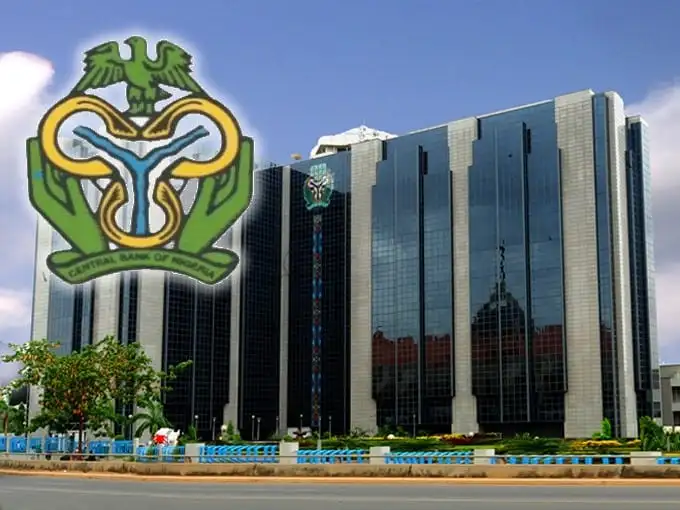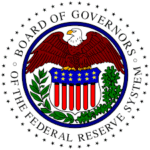Last Updated on April 5, 2025 by admin
The Central Bank of Nigeria (CBN) was established in 1958, marking a significant milestone in Nigeria’s financial history. It commenced operations on July 1, 1959, with the primary objectives of maintaining external reserves, promoting monetary stability, and acting as a banker to the federal government.
Over the years, the CBN has played a pivotal role in the country’s economic development, adapting its functions to meet the changing needs of the Nigerian economy
One of the early achievements of the CBN was the issuance of its first treasury bills in April 1960, followed by the launch of the Lagos Bankers Clearing House in May 1961. These initiatives were crucial in establishing a structured financial system in Nigeria. By July 1, 1961, the CBN had completed the issuance of new Nigerian notes and coins, replacing the West African Currency Board notes and solidifying its role in the country’s monetary system
Throughout its history, the CBN has undergone several legal reforms to enhance its autonomy and scope of operations. Notable reforms include the CBN Decrees of 1991 and the 2007 Act, which expanded its regulatory oversight and monetary policy tools. These reforms were instrumental in modernizing Nigeria’s financial systems and ensuring economic growth, particularly during periods of economic liberalization in the 1980s and 1990s
In recent years, the CBN has focused on stabilizing the Nigerian economy by implementing monetary policies that control inflation and foster price stability. It has also played a crucial role in managing foreign exchange rates and supporting economic growth by channeling credit to key sectors like agriculture and manufacturing.
These efforts have been vital in driving job creation, industrialization, and attracting foreign investments, thereby positioning the CBN as a cornerstone of Nigeria’s economic development
Also read: The history and origin of banking in Nigeria
Central Bank Act, 1958
The Central Bank Act, 1958 was the legislation that established the Central Bank of Nigeria (CBN). It laid the foundation for the bank’s operations and defined its objectives. Key highlights of the Act include:
- Establishment of the CBN: The Act officially created the Central Bank of Nigeria, which commenced operations on July 1, 1959.
- Currency Issuance: Empowered the CBN to issue legal tender in Nigeria.
- Monetary Stability: Tasked the CBN with maintaining monetary stability and safeguarding the value of the Nigerian currency.
- External Reserves Management: Directed the CBN to manage Nigeria’s external reserves to ensure economic stability.
- Government Banker: Designated the CBN as the banker and financial adviser to the Federal Government.
The Act was later repealed and replaced by subsequent legislation, including the CBN Act of 2007, which expanded the bank’s mandate and autonomy.
CBN 1997 amendments
The CBN (Amendment) Decree No. 3 of 1997 introduced significant changes to the Central Bank of Nigeria’s operations. Key highlights include:
- Reduced Autonomy: The amendment placed the CBN under the supervision of the Ministry of Finance, limiting its independence. The CBN became directly accountable to the Minister of Finance for its supervisory and regulatory functions.
- Expanded Supervisory Role: The CBN’s oversight was extended to include specialized banks and other financial institutions.
- Subjugated Role: The amendment reduced the CBN’s discretionary powers, giving the Ministry of Finance greater control over financial institutions.
This amendment was later repealed by the CBN (Amendment) Decree No. 37 of 1998, which restored some level of operational autonomy to the CBN
CBN 1998 amendments
The CBN (Amendment) Decree No. 37 of 1998 introduced significant changes to the operations of the Central Bank of Nigeria (CBN). Here are the key highlights:
- Restoration of Autonomy: The decree repealed the 1997 amendments that had placed the CBN under the supervision of the Ministry of Finance. It restored a measure of operational independence to the CBN.
- Board of Directors: The composition and responsibilities of the CBN’s Board of Directors were redefined, including the Governor as Chairman and four Deputy Governors.
- Policy Formulation: The Board was tasked with formulating monetary and credit policies, approving budgets, and overseeing the general administration of the bank.
- Reporting Requirements: The Governor was required to keep the President informed of the bank’s affairs and submit formal reports every six months.
- Employee Appointments: The decree specified that appointments and removals of senior staff (Assistant Director and above) required Board approval.
You can also read: The Origin and History of Banking- Evolution of Bank in the world
The CBN Act, 2007
The CBN Act, 2007 outlines the framework for the operations and responsibilities of the Central Bank of Nigeria. It establishes the CBN’s independence and legal authority to carry out its functions as Nigeria’s apex financial institution. Here are some of its key provisions:
- Monetary Policy Implementation: Grants the CBN autonomy to develop and execute policies for price stability and economic growth.
- Currency Management: Authorizes the CBN to issue the legal tender and regulate the supply of money in Nigeria.
- Regulation of Financial Institutions: Empowers the CBN to supervise and oversee banks and other financial institutions to ensure stability in the financial system.
- External Reserves Management: Directs the CBN to maintain adequate reserves to safeguard the value of the Naira.
- Developmental Mandate: Allows the CBN to promote economic development through targeted initiatives and support for key sectors.
- Government Banker: Establishes the CBN as the banker to the Federal Government, including managing public debt and providing financial advice.
The Act emphasizes transparency, accountability, and efficiency in the CBN’s operations.
The BOFI (Amendment) Decree, 1998
The Banks and Other Financial Institutions (BOFI) Amendment Decree, 1998 introduced changes to the original BOFI Act of 1991, which governs the operations of banks and other financial institutions in Nigeria. The amendment aimed to strengthen the regulatory framework and address emerging challenges in the financial sector. Key provisions included:
- Enhanced Regulatory Powers: The Central Bank of Nigeria (CBN) was granted additional authority to supervise and regulate financial institutions more effectively.
- Capital Requirements: Adjustments were made to the minimum paid-up share capital requirements for banks to ensure financial stability.
- Licensing and Operations: The amendment refined the processes for granting licenses to banks and outlined conditions for their operations.
- Foreign Banks: Provisions were included to regulate the activities of foreign banks operating in Nigeria.
- Penalties: Stricter penalties were introduced for non-compliance with banking regulations.
The decree was part of broader efforts to modernize Nigeria’s financial system and align it with international standards.
Functions of the CBN
The Central Bank of Nigeria (CBN) plays a vital role in the country’s financial and economic system. Here are its key functions:
- Monetary Stability: Ensures price stability and controls inflation by regulating monetary policies
- Currency Issuance: Issues legal tender currency in Nigeria
- External Reserves Management: Maintains external reserves to safeguard the international value of the Naira
- Financial System Regulation: Promotes a sound financial system by supervising banks and other financial institutions.
- Government Banker and Adviser: Acts as a banker to the government and provides economic and financial advice.
- Debt Management: Manages domestic debt and advises the government on new debt instruments.
- Credit Control: Regulates the volume and direction of bank loans.
- Exchange Rate Stability: Maintains a stable external value of the Naira to promote foreign trade.
The objective of the CBN
The objectives of the Central Bank of Nigeria (CBN) are outlined in the Central Bank of Nigeria Act. They form the foundation of its mandate in maintaining and promoting a stable financial system in the country. These include:
- Ensuring Monetary and Price Stability: Controlling inflation and stabilizing the value of the Naira.
- Issuing Legal Tender: Providing and regulating Nigeria’s currency.
- Maintaining External Reserves: Safeguarding reserves to support the Naira’s value and ensure external stability.
- Promoting a Stable Financial System: Supervising banks and ensuring the overall soundness of financial institutions.
- Acting as a Banker to the Government: Managing the government’s accounts and offering financial advice.
Full list of Central bank of Nigeria CBN Governor since 1958
Here is a list of the Central Bank of Nigeria (CBN) Governors since its establishment in 1958:
- Roy Pentelow Fenton (1958–1963) – The first Governor and the only expatriate to hold the position.
- Aliyu Mai-Bornu (1963–1967) – The first Nigerian Governor of the CBN.
- Clement Nyong Isong (1967–1975) – Played a significant role during the Nigerian Civil War.
- Adamu Ciroma (1975–1977) – Focused on economic stabilization.
- Ola Vincent (1977–1982) – Contributed to the development of the banking sector.
- Abdulkadir Ahmed (1982–1993) – Managed the financial sector during challenging economic times.
- Paul Agbai Ogwuma (1993–1999) – Introduced reforms in the financial sector.
- Joseph Oladele Sanusi (1999–2004) – Strengthened the regulatory framework of the financial sector.
- Charles Chukwuma Soludo (2004–2009) – Known for banking sector consolidation.
- Sanusi Lamido Sanusi (2009–2014) – Initiated major banking reforms.
- Sarah Alade (2014) – Served as Acting Governor for a brief period.
- Godwin Emefiele (2014–2023) – Focused on economic growth and stability.
- Folashodun Adebisi Shonubi (2023) – Served as Acting Governor.
- Olayemi Cardoso (2023–Present) – The current Governor.
Each of these individuals has contributed to shaping Nigeria’s financial and economic landscape.
- List of 9mobile/etisalat data Plan and subscription code - January 27, 2026
- How to buy data, Request and gift dataon Airtel - January 26, 2026
- How to buy Glo data plan and cancel data Renewal - January 24, 2026






